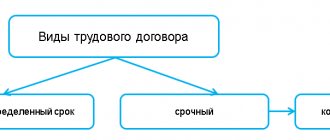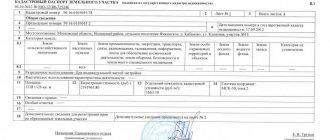When purchasing a home remotely in a new building and in many other situations, it is necessary to check the DDU - equity participation agreement - in Rosreestr. This should be done if there is the slightest doubt that the developer is reliable. And sensible people control the registration of a transaction even in the complete absence of mistrust. After all, the DDU may not end up in Rosreestr and not through the fault of the developer.
We will tell you how to check for state registration of a document on your share participation. But if after all the necessary manipulations the contract is not found, then perhaps you are dealing with a scam or negligence. In such cases, a civil lawyer will help you avoid trouble or reduce damage.
Is everything protected by law?
Law No. 214-FZ does not provide one hundred percent protection for participants in shared construction from unforeseen situations and cannot guarantee that the apartment will be completely ready on time and transferred to your ownership.
For example, the construction of a project may be suspended for an indefinite period due to conflicts between the developer and residents of neighboring houses, the local administration, etc.
In addition, the development company may be declared financially insolvent (that is, bankrupt), and then construction will stop forever, and the DDU will lose its relevance.
In the latter case, the unfinished house will be sold at auction, and the company will pay off its debts with the proceeds. However, the proceeds may not be enough to fully pay off all shareholders. Thus, you may lose some of your investment.
At present, a standard DDU has not been developed, which allows developers to include in its terms and conditions clauses that, although they do not directly contradict the law, often infringe on the rights of citizens. Therefore, before entering into a DDU, it is recommended to consult an independent lawyer.
Advantages of DDU for investors
- Strict regulation of the text of the contract. It specifies the responsibilities of each party. Information about the object is described in detail: its footage, apartment number, its layout. After signing the document, the shareholder automatically becomes the mortgagee, and the developer - the mortgagor. Land is used as collateral property. It is subject to foreclosure if the developer fails to fulfill its obligations.
- Mandatory registration. DDU is registered with the cadastre and cartography authorities. This eliminates the possibility of “double selling” of the same object. DDU for one object will not be registered a second time.
- Financial responsibility. Failure to comply with the deadlines for the delivery of the object is fraught with monetary compensation for the developer to the shareholders. All they have to do is go to court.
- Quality assurance. 214-FZ imposes a five-year warranty on the object, which is covered by the developer.
Risks for investors
Construction freeze
In accordance with 214-FZ, the investor is a third-priority creditor. In case of bankruptcy of a construction company, the return of its funds is carried out only after the requirements of banking organizations, company employees, etc. are satisfied. According to statistics, the largest number of unfinished buildings occur in the Leningrad, Moscow, Voronezh regions and Krasnodar Territory.
Housing encumbrance
For construction, the developer can raise borrowed capital. Moreover, banks issue in tranches. Housing under construction is used as collateral. In case of failure to fulfill obligations to credit institutions, apartments sold under the DDU receive an encumbrance.
Double sale
Possible prior to registration of the DDU with the authorized bodies. In accordance with the law, the document registered first is considered valid. Other investors will be denied registration. Most often, intermediaries resort to such fraudulent schemes. They buy housing at the initial stages of construction at cost and sell it after a certain period at the market price to several buyers. The first person to register the contract becomes the owner of the home. For the rest, the intermediary returns the cost of the object specified in the contract, that is, several times less than the amount they paid.
Changes in design documentation
The construction company may make adjustments that are not for the better for the investor. They may affect the layout and total area of the apartment. After the property is handed over, the shareholder may receive housing that does not meet his stated requirements. The trial could take several years.
Price increase
The legislation does not recognize the construction of a residential building as an investment project. The price of the apartment includes VAT of 18%. The procedure for making additional payments when increasing the area of living space is determined by the developer. In some cases, this leads to a serious increase in price.
Postponement of project delivery deadlines
The construction company can postpone them for an arbitrary period. In order not to pay compensation to shareholders, she must provide a valid reason.
Option three - multifunctional center
Today, most of the work with primary documents is carried out by multifunctional centers, which are located in almost every district of the city. They serve all citizens, regardless of their place of residence. They operate with virtually no queues, service is fast, and in addition, the operating mode of the MFC is very convenient.
Important!
Not only the shareholder himself, but also the developer can contact the center. It is necessary to write an application requesting a copy of the DDU. The most important thing is that the agreement undergoes the required registration, then you can get a copy of it without any problems.
You can ask legal professionals all questions regarding the restoration of your documents. We will help you easily, very quickly and without your participation, restore the shared-equity project, and also solve any other problems related to participation in the shared project. You will find out how to contact us to receive [anchor href=»h-cons.ru/uslugi/»]legal services if you visit the “Contacts” page, where you can find all our data.
Requirements for the developer according to 214-FZ
To sell apartments in housing under construction, the developer must obtain a special permit from the Ministry of Construction and Housing and Communal Services. The Ministry of Construction checks:
What is the legal form of the development company?
Permission is issued only to business companies: limited liability companies (LLC) or joint stock companies (JSC). The Ministry will refuse to apply to non-profit organizations or individual entrepreneurs.
Who holds leadership positions in the company
The managers of the developer and the chief accountant cannot be persons who:
- have an outstanding or unexpunged conviction for economic crimes or crimes against government,
- solely owned a company that went bankrupt less than five years ago,
- owned at least 5% of the shares of a company that went bankrupt less than three years ago,
- have been disqualified and have no right to engage in such activities.
Is there a project declaration
To confirm that there are no violations in the project, the developer must attach a special expert opinion to the declaration.
How much money does the developer have?
The company must have its own funds in an amount greater than 10% of the project cost of construction. Such funds include not only money in accounts, but also real estate, land plots or accounts receivable. Also, before obtaining permission, the developer must open an account with an authorized bank. He must deposit 10% of the project cost of construction into the account. If he doesn't have that kind of money, he can take out a loan. The loan amount must be more than 40% of the project cost. The Ministry of Construction will not issue a permit if the company:
- has not yet paid for previously taken credits, advances or borrowings,
- issues any securities other than shares,
- pledged her property to secure obligations,
- participates in bankruptcy proceedings,
- suspended activities by court decision,
- did not fulfill the contract or agreement after winning the procurement and ended up in the Register of Unfair Suppliers (RNP),
- failed to pay taxes, fees or other government payments on time.
What experience does the developer have?
The developer must participate in the construction of apartment buildings for at least three years. During this time, he must build at least 5,000 m2 of housing. The Ministry takes into account facilities built by related organizations, as well as projects in which the developer was the technical customer or general contractor.
Who owns the development land?
The developer must own the building site or lease or sublease it.
Content
- Features of DDU: guarantees and conditions
- DDU guarantees
- The most important thing in DDU
- Documents that you should pay attention to when concluding a DDU
- Basic documents
- What conditions should I pay attention to?
- When can you terminate the contract?
In Art. 4 Federal Law No. 214-FZ dated December 30, 2014 stipulates the decoding of the DDU in construction. DDU is an agreement under which the developer undertakes to build an apartment building and, after receiving permission to enter it, transfer the finished housing to a participant in shared construction, who, in turn, undertakes to pay the established cost of the object.
Purchasing a property that is under construction carries certain risks compared to purchasing a home in a finished building. But the latest changes in No. 214-FZ minimize the risks of buyers.
From now on, construction companies must work through special escrow accounts, where the funds contributed by the shareholder are frozen. The company can receive these funds only after completing the construction of the house and putting it into operation.
So, now it’s clear how the abbreviation DDU stands for. It is associated with real estate, or more precisely with the purchase of an apartment during the construction stage of a house.
Mandatory clauses of the DDU
The agreement can be drawn up in any order. However, 214-FZ highlights some points that must be present in the text of the document without fail.
- A clear description of the investment object. It can be residential or non-residential premises. It should be described in as much detail as possible, according to the project documentation. The text indicates the total area, layout, floor, apartment number, location.
- Exact construction completion dates. The DDU must indicate a specific date after which investors can approach the court.
- Price. The full cost of the property, the scheme and its repayment period are indicated.
- Guarantee. It is indicated that the developer bears warranty obligations during the operation of a residential building. The minimum term is five years. Shorter periods are unacceptable.
- Responsibility. The actions that will occur if each party fails to comply with the terms of the transaction are described: the possibility of termination, financial compensation, etc.
Before signing the document, it does not hurt the investor to study the financial documentation of the developer. Particular attention should be paid to annual reports for three or more years, balance sheet, distribution of profits and losses.
Important! You cannot enter into a DDU if the developer does not have permits for construction. In most cases, investors lose their capital due to illegal construction.
The right to a land plot can be checked by cadastral number in the State Register. This will eliminate double transactions.
Precautionary measures
The first step is to study the norms of 214-FZ. They will answer frequently asked questions related to equity investing.
A reliable developer is the best way to protect yourself from investment risks. When choosing it, carefully study the financial statements and constituent documents. 214-FZ gives shareholders the right to demand any information about the activities of the construction contractor. You can read reviews about the company, but you shouldn’t trust them 100% - negative information may be left by competitors. More informative than reviews is the audit report for the last year, the profit and loss statement, and the developer’s net assets.
You should not enter into schemes other than DDU. They are aimed at circumventing the Federal Law “On participation in shared-equity construction.” Therefore, they are not covered by any warranty.
There are many risks associated with DDU. Unfortunately, 214-FZ still has loopholes that unscrupulous developers take advantage of. The guarantee of receiving an object in accordance with all the requirements specified in the law is not always one hundred percent. Real estate market experts suggest potential clients learn a simple rule: “Transfer money only after a registered DDU.” Only in this case can you save your capital, time and nerves.
What conditions should I pay attention to?
To minimize the risks of a participant in shared construction as one of the parties to the DDU, deciphering its conditions is very important.
The contract price is a significant and very important condition. Before signing the DDU, it is necessary to once again analyze all the conditions relating to the value of real estate and the payment procedure, in particular:
- the full cost of the object is indicated;
- the procedure for its payment is described (one-time payment, installments);
- if payment is made in one payment, then the document indicates the period for depositing funds after state registration of the agreement in Rosreestr;
- the payment method is specified. Currently, escrow accounts are used, i.e. The participant's money is frozen in a special bank account. If the developer indicates his account in the payment details, this is a direct violation of the law, which will be followed by criminal or administrative liability.
The future owner should also pay attention to the moment at which the buyer is responsible for paying utility bills. According to the law: payments are made only from the moment the transfer deed is signed.
It is important to familiarize yourself with the procedure for terminating the DDU. In Art. 9 of Federal Law No. 214-FZ spells out all the conditions for termination. The participant has the right to initiate unilateral termination of the contract only if the construction company improperly fulfills its obligations.
The first trick. They build what they want
In which building will the purchased apartment be located? It would seem that there should be utmost clarity here, because it is possible to attract funds from shareholders only after the project declaration of the object has been published or posted on the construction company’s website. It clearly describes the number of floors, engineering solutions, and building materials used.
Nevertheless, sometimes a clause appears in the DDU about the right of the developer to change the project at his own discretion. Theoretically, this could lead to the fact that a mid-rise building will grow by several floors (there have been precedents) or the size of the local area will decrease.
In general, the presence of such a condition in the contract is a risk of receiving the wrong product for which you paid. And you will have to defend your interests in court, the decision of which is unpredictable. The law allows the contract to be terminated at the initiative of the shareholder if the house delivered by the developer has “significant changes in the design documentation.” But exactly what changes can be considered significant is left to the discretion of the servants of Themis. The law only clarifies that such changes will be recognized as “significant changes in the size of a shared construction project”, as well as “changes in the purpose of common property and (or) non-residential premises”.









